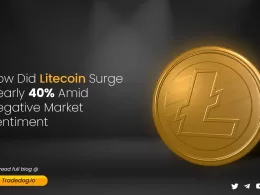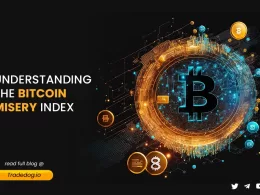Quick Links
The prolonged lawsuit filed by the SEC against Ripple Labs, creators of the popular cryptocurrency Ripple (XRP), concluded on Thursday. Ripple won the case and ruled that the cryptocurrency would not be considered a security token. Following the win, the token saw a tremendous increase of more than 75% in a single day, heralding a bullish resurrection of the market. Let’s understand the case & the win in today’s TD Daily!
The Lawsuit
The SEC filed a lawsuit against Ripple, the blockchain technology company behind XRP, for several reasons related to securities laws and regulations. The SEC charged the company and its current and past chief executives with executing an unregistered $1.3 Billion securities offering by selling XRP, which Ripple’s creators invented in 2012. The following are the key factors that led to the SEC’s lawsuit:
- Alleged Unregistered Securities Offering: The SEC alleged that Ripple conducted an unregistered securities offering by selling XRP tokens. The judge divided the sale into two parts: Institutional Sale (sale to VCs, Hedge Funds & other investment companies) and Programmatic Sale (sale to retail investors). The SEC contended that XRP should be treated as a security and subject to the same regulations as traditional securities.
- Institutional Sales of XRP: The SEC alleged that Ripple’s institutional sales of XRP constituted an illegal securities offering. These sales involved selling XRP directly to hedge funds, venture capital firms, and other institutional buyers without proper registration. The SEC also argued that Ripple’s activities violated federal securities laws.
The SEC’s lawsuit against Ripple aimed to compel Ripple to cease offering XRP and to enforce compliance with securities regulations. The lawsuit’s outcome has significant implications for classifying XRP and the broader regulatory framework for cryptocurrencies.
The Court’s Decision
On July 13 (Thursday), the court ruled in favor of the SEC, stating that Ripple’s institutional sales of XRP to sophisticated individuals and entities were considered securities transactions and constituted an investment of money.
However, the court provided a nuanced view by siding with Ripple regarding programmatic sales, sales made through trading algorithms, and other distributions, such as employee compensation. It concluded that these sales did not involve offering and selling investment contracts or investing money. Furthermore, Judge Analisa Torres ruled that XRP is a security for institutional sales but not for public sales, indicating that the classification of XRP as a security depends on the specific sales method and the nature of the transaction.
The court’s decision has both market and industry implications. Following the ruling, the value of XRP surged by 75%, indicating positive market sentiment and hope among crypto investors that other altcoins may not be considered securities as well. This landmark victory for Ripple and the cryptocurrency industry may have broader implications, providing ammunition for other crypto firms battling similar SEC lawsuits and potentially leading to revisions in the SEC’s approach to regulating digital assets. It is worth noting that the ruling can be appealed, and the SEC is reviewing the decision, leaving room for future developments and revisions in the case.
Closing Thoughts
Overall, the court’s ruling brings a mixed outcome for Ripple, acknowledging the SEC’s claims regarding securities law violations in institutional sales while denying the SEC’s request for summary judgment in other circumstances. This complexity highlights the challenges of determining the classification of XRP as a security and underscores the importance of specific sales methods and transactions in the legal assessment. The ruling has significant implications for the crypto industry, potentially shaping future regulatory actions and legislative efforts related to digital assets.









